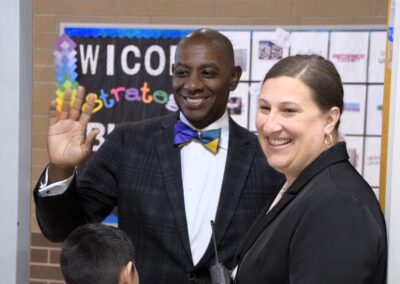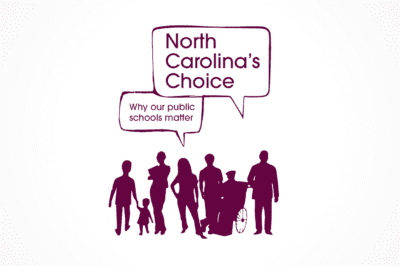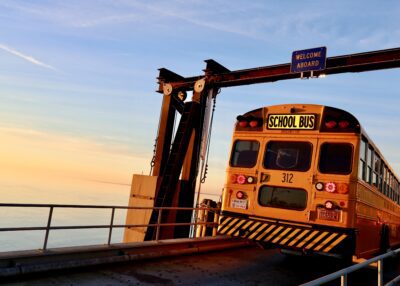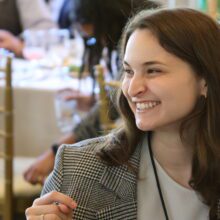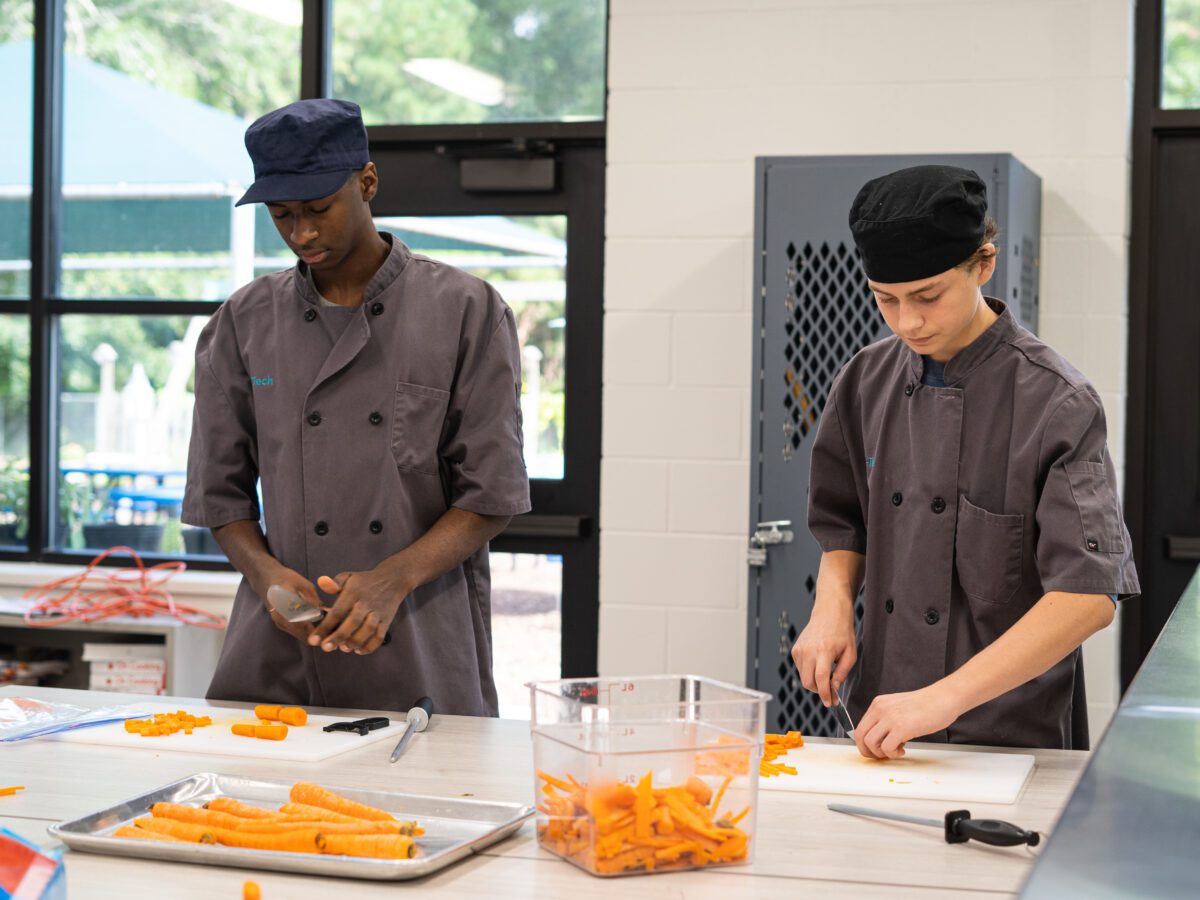
|
|
Editor’s Note: Recently, EdNC published a book, titled “North Carolina’s Choice: Why our public schools matter.” Here is a free PDF of the book. A printed copy can be ordered here. This series spotlights public schools across North Carolina.
The bright lobby of Southeast Area Technical High School (SEA-Tech) was designed to be welcoming. With student artwork, photos of the community, and Principal Edith Skipper there to greet you, the feeling of belonging this school prides itself on is everywhere.
Innovation is at the core of the school’s mission and achieved through its unique pathways for students to graduate and immediately enter the workforce or go on to postsecondary education.
“One size does not fit all. The thing that makes this special and that makes it so hard is that we’re individualizing for children. And we’re meeting them where they are and carrying them as far as they can go,” said Skipper.
Built to do school differently
SEA-Tech was established in 2017 and built to do school differently. The school is a Cooperative Innovative High School, which means it is a small public high school designed to expand students’ opportunities for educational success through accelerated learning opportunities.
The origins of the school can be traced back to conversations that started decades ago, when people began noticing the gaps in the local workforce.
“They talked about it for about 20 years, and then the superintendent said we’re gonna make this happen. And he started and we ran as fast as we could,” Skipper said. “I was hired in March of 2017. We opened the doors in August of 2017.”
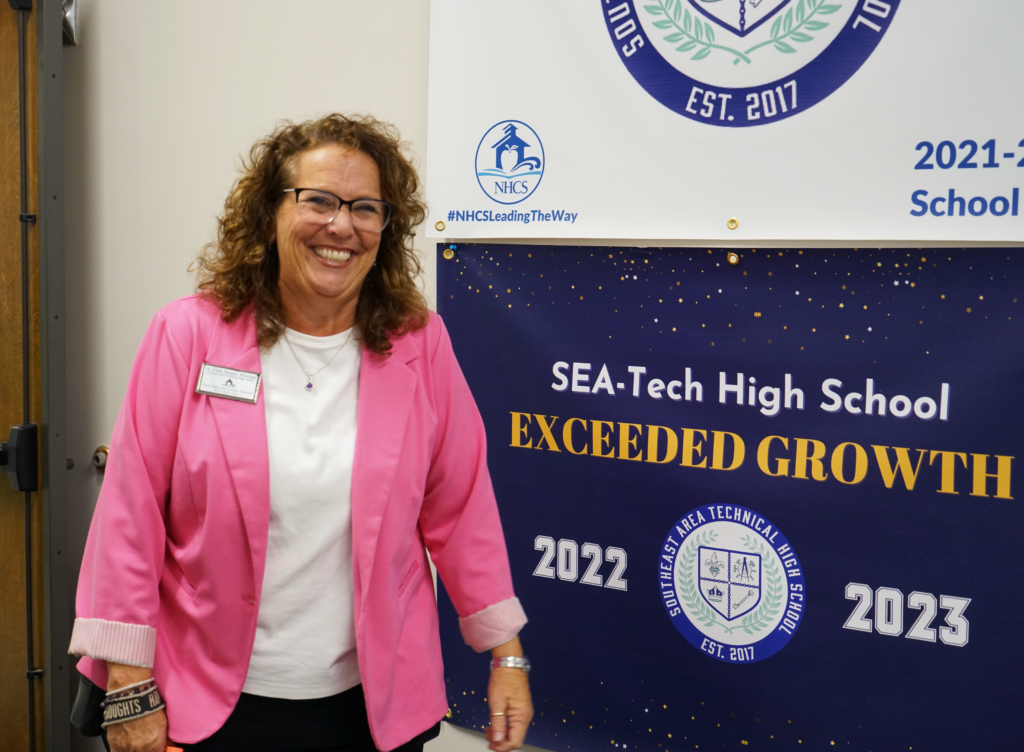
Part of New Hanover County Schools, SEA-Tech serves students from both New Hanover and neighboring Pender counties. A large part of the school’s mission is to prepare students for technical careers and with local workforce gaps in mind.
Students often choose SEA-Tech because they want a different high school experience, one that may lead to postsecondary education but also one that can lead them straight into the workforce.
Currently, the school has 261 students enrolled across five grade levels.
“My mom and dad were both tradespeople. My dad was in the field working so I understood it and I value it. I have a doctorate. I also value the four-year institution. So it was kind of like putting all the pieces together for me,” said Skipper.
Filling local workforce gaps
In the 2022-23 school year, 50% of SEA-Tech students used the technical education they received from high school and went straight to work.
SEA-Tech offers four different Career Academies options to students: constructions trades, health and fitness, culinary and hospitality management, and information technology. Within those four academies, students can choose different subjects to gain hands-on career and technical experience.
![]() Sign up for the EdWeekly, a Friday roundup of the most important education news of the week.
Sign up for the EdWeekly, a Friday roundup of the most important education news of the week.
Construction Trades Academy
- Construction Management –
- Carpentry/Sustainable Technology
- Plumbing/Electrical and HVAC
- Landscaping
Culinary & Hospitality Management Academy
- Culinary Arts
- Baking & Pastry Arts
- Hospitality & Tourism
- Sports Marketing
Health & Fitness Academy
- Medical Assisting
- Pharmacy Technology
- Health & Fitness Science
- Sports & Athletic Training
Information Technology Academy
- Cyber Security & Networking
- Software & Web Development
- Systems Administration
- Healthcare Business Informatics


The Career Academies offer two-to-three year programs with specialized courses through the high school or at Cape Fear Community College. Several of the academies offer industry recognized credentialing opportunities at the time of course completion. The CTE programs require an internship in the respective area of study for completion. The internships vary in length, and some are paid, while others are not. Regardless, students get hands-on experience while enrolled.
Below is a breakdown of the total graduates for the last three graduating classes from SEA-Tech and where they went after graduating. Approximately 38% of the graduating class of 2021 went directly into the workforce. From the class of 2023, 69% entered the workforce after graduating.
Class of 2021 (13 graduates)
- 4 year university – 46%
- 2 year university/trade school – 8%
- Military – 8%
- Employment – 38%
Class of 2022 (36 graduates)
- 4 year university – 31%
- 2 year university/trade school – 19%
- Military – 3%
- Employment – 47%
Class of 2023 (35 graduates)
- 4 year university – 9%
- 2 year university/trade school – 20%
- Military – 2%
- Employment – 69%
Experiential education, including a SPARK Lab
Experiential education is built into the beliefs of the school, which are to explore, empower, and contribute.
Education at SEA-Tech is not meant to be prescriptive. The school wants to empower its students to explore different fields to see what interests them and so they can eventually be positive contributors to their communities.
Sometimes this exploration leads to discovery of a career aspiration and other times it results in critical skill development for life outside the classroom. During SEA-Tech’s first year, they had two students enrolled that had children. They wanted to learn to cook in order to better feed their families, so they enrolled in culinary classes.
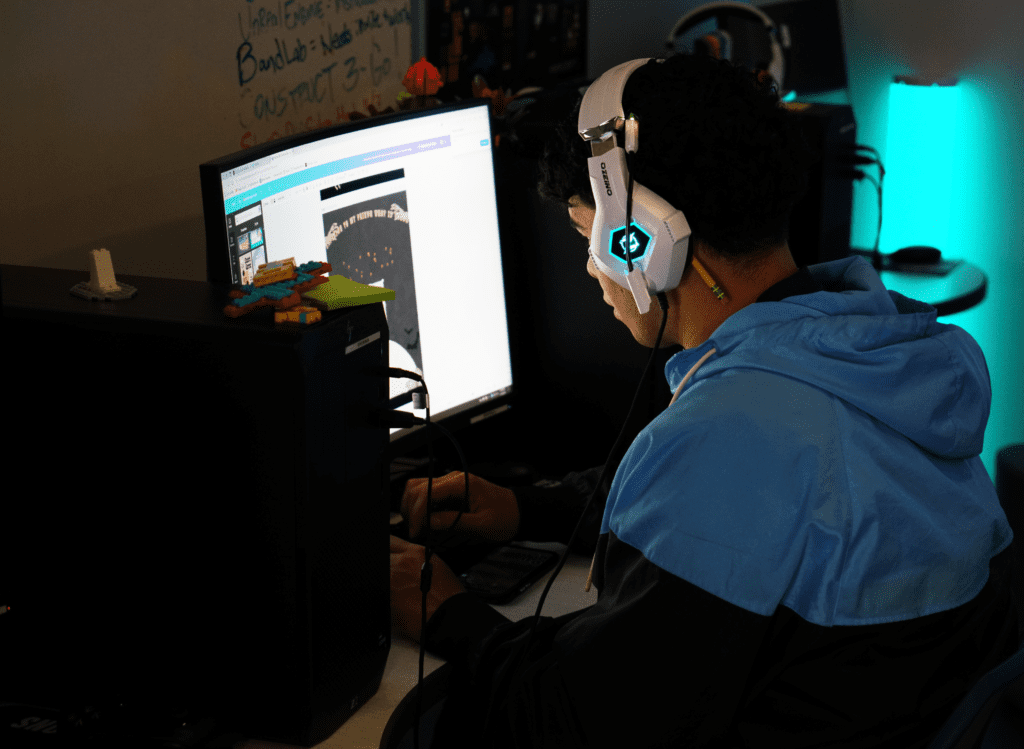
Students at SEA-Tech get to be a part of the evolution of the school through experiential learning.
Right now, the school is preparing for a new coffee bar in the lobby. With the help of the SPARK Lab, a technology-focused learning space promoting innovation, students are developing an app that will allow people to order their coffee digitally. Once the coffee bar opens, students will also have the opportunity to staff the bar.
If technology isn’t a main interest of students, they may spend less time in the SPARK Lab and more time in the micro fitness center on campus or out back gardening. SEA-Tech students are responsible for growing some of the vegetables and herbs that they use in the culinary classes. They also sort their lunch leftovers for the compost bin full of scraps and live worms.
“This is a big huge world and narrowing down to what I want to do is tough. Children don’t have built in opportunities to test the waters to see ‘where do I fit?,’” said Skipper.
SEA-Tech has become a school where students can explore where they fit.
Recommended reading
